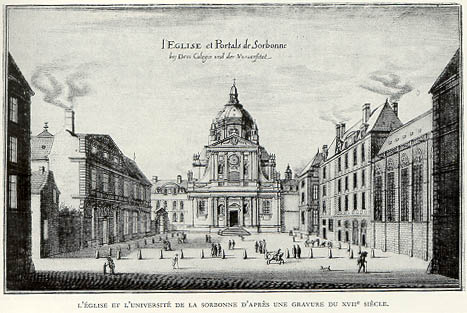Who was the most influential person on computer science (or computing if you prefer)? A web search is not particularly helpful. Most of the times, the pages I got were confusing CS with programming. However, to quote Edsger Dijkstra, "Computer Science is no more about computers, than astronomy is about telescopes". Some names may come quickly to

mind: Alan Turing, Church, Kleene etc, were all pivotal to the development of the computing science. But a deeper search can reveal the person who had the most critical impact: David Hilbert.
Hilbert was a German mathematician who worked on an incredible range of subjects: number theory, logic, geometry and over to special relativity theory. Yet, it was not his direct contribution that matters, but the influence he had to others on working on the fundamentals of computation. And it all started by his zealous stance towards a deep philosophical debate of the "ignoramus et ignorabimus".
And now the story begins.
Back in 1872 Emil du-Bois Reymond was a well-respected physiologist with considerable work on electro-physiology, studying the electric "properties" of human and animal tissues. At this year, he publishes a paper in which he claims his philosophical belief of "ignoramus et ignorabimus" (=we don't know and we won't know). This was a slightly more pessimistic version of the well known Socratic view "I know one thing; that I know nothing" but it was gaining acceptance through the philosophical circles at the time. The main point was that there are some stuff that humans do not know and they will never know (e.g. the origin of life or the universe) One might agree that it seems like a yet-another harmless philosophical idea. Some people were supporting it, others would be skeptical, but all in all, life would go on. But science was meant to take a dramatic turn because a man would take this debate to the extreme.
At that time David Hilbert was 10 years old. In subsequent years, through his work, he would confront deep philosophical problems, even within mathematics. However, the "ignorabimus" movement had really hit his nerve.  In 1900, in the International Mathematics Conference in Paris, he addresses a call to arms to mathematicians by claiming: "in mathematics there is no ignrorabimus!". He uses mathematics to exterminate once and for all the pessimistic view, and claims that there should be a finite process of inference rules, that when applied, they would infer any correct statement. He then asks from mathematicians to help him in this direction (the 2nd problem in the problem list he announces at this speech was related)
In 1900, in the International Mathematics Conference in Paris, he addresses a call to arms to mathematicians by claiming: "in mathematics there is no ignrorabimus!". He uses mathematics to exterminate once and for all the pessimistic view, and claims that there should be a finite process of inference rules, that when applied, they would infer any correct statement. He then asks from mathematicians to help him in this direction (the 2nd problem in the problem list he announces at this speech was related)
 In 1900, in the International Mathematics Conference in Paris, he addresses a call to arms to mathematicians by claiming: "in mathematics there is no ignrorabimus!". He uses mathematics to exterminate once and for all the pessimistic view, and claims that there should be a finite process of inference rules, that when applied, they would infer any correct statement. He then asks from mathematicians to help him in this direction (the 2nd problem in the problem list he announces at this speech was related)
In 1900, in the International Mathematics Conference in Paris, he addresses a call to arms to mathematicians by claiming: "in mathematics there is no ignrorabimus!". He uses mathematics to exterminate once and for all the pessimistic view, and claims that there should be a finite process of inference rules, that when applied, they would infer any correct statement. He then asks from mathematicians to help him in this direction (the 2nd problem in the problem list he announces at this speech was related)Almost 28 years later, in 1928, Hilbert poses yet another challenge: The Entscheidungsproblem asks specifically for an algorithm that will be able to decide if a specific statement (e.g. 1+1=2) is true or not. During the 30's great things just start happening. In 1931, Kurt Godel breaks the first problem with his ground-breaking theorem of incompleteness. In short, most interesting systems, can either infer contradictory statements or they cannot infer some correct statements. Later, in 1936 and 1937 Church and Turing independently solve the last puzzle by proving that there are statements that cannot be proved or disproved. Hilbert's dream was shuttered but a new scientific field was born out of the proofs of these very problems! It is important to note here that, 5 years before his proof, Alonzo Church was in the famous Gottingen University during the years 1929-1931, visiting...David Hilbert.

But wait, there is more! It was not only theoretical computer science that was catalyzed by the influence of David Hilbert. The creation of the first general-purpose electronic computers would be pioneered by his assistant. Even in 1942, one year before the ENIAC project, Hilbert's former assistant in the University of Gottingen, would start an ambitious project of creating a general-purpose computer in the Institute of Advanced Studies at Princeton University, that ended in 1952. His work all these years marked the beginning of this era and his architecture is preserved more or less even in today's computers. His name was ...John Von Neumann!
Other than Hilbert, who else can claim of having a bigger impact on computer science?